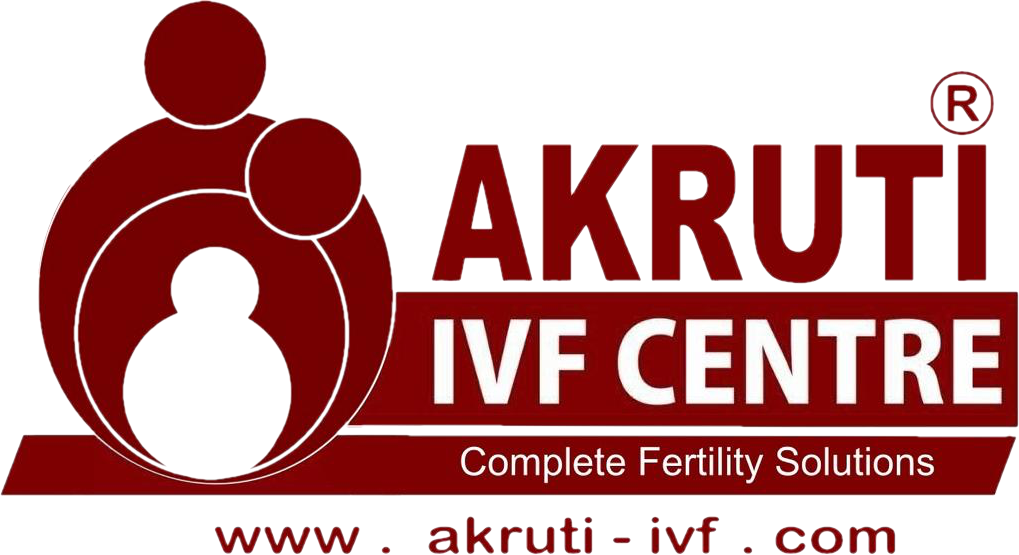Endometriosis

Endometriosis
Endometriosis is a disorder in which endometrial tissue (lining of inner layer of uterus) grows outside the uterus.
Endometriosis is a painful disorder which commonly involves ovaries, fallopian tubes & peritoneal lining of pelvis including scar tissues.
When it involves ovaries, it gives cyst in the ovaries known as endometrioma.
When this endometrial tissue responds to changes in menstrual cycle, it thickens, break down & bleeds giving fibrosis & adhesions between tissues causing severe pain.
Endometriosis gives inflammatory reaction & irritation to surrounding tissues causing abnormal bands which ultimately gives severe adhesions.
Endometriosis gives severe pain during menstrual periods due to bleeding in the tissues.
Endometriosis gives infertility due to toxic inflammatory reaction in the reproductive system causing side effects on oocytes, embryos & endometrium.
What are the symptoms of endometriosis?
Dysmenorrhea – painful menstruation
During menstrual period severe cramping & pelvic pain starts before menses and continues several days post menses
Dyspareunia – pain during intercourse
It is a common complaint with endometriosis due to adhesions in pelvis.
Painful defecation & urination
Due to adhesins to rectum& urinary bladder this is a symptom of endometriosis
Menorrhagia
Excessive bleeding during menses & intermenstrual bleeding occurs in endometriosis
Infertility
this can be a first symptom in few patients which is found during treatment of infertility
Other symptoms include -nausea, diarrhea, bloating, fatigue, severe constipation during menstrual periods
Endometriosis pain is not directly proportionate to severity of the disease, sometimes mild endometriosis also can give severe pain.
What conditions can mislead the diagnosis of endometriosis?
Certain conditions like below, may seem like endometriosis because of similar symptoms, but may not actually be.
· Pelvic inflammatory Disease
· Ovarian cysts
· Irritable bowel syndrome
· Other causes of Diarrhea & constipation
· Premenstrual Syndrome
· Dysfunctional uterine Bleeding
Doctors have to do further examination and tests to ensure that these symptoms really mean endometriosis.
Causes of Endometriosis
Retrograde menstruation
Retrograde menstruation is a condition in which menstrual blood containing endometrial cells, flows in reverse direction in fallopian tubes & then enters in the pelvic cavity.
These endometrial cells then stick to pelvic walls & pelvic organs surrounding tubes which grows and continue to thicken and bleed during each menstrual cycle ultimately gives thick adhesions and severe pain.
Transformation of peritoneal cells
According to induction theory some hormones & immune factors promotes transformation of peritoneal cells into endometrium like cells. These cells cause lot of endometrial pain.
Embryonic cell transformation
Hormones like Estrogen transform embryonic cells in earlier stage of fetal development, which ultimately behaves like endometrial cell implants during puberty.
Scar implantation
Due to caesarian section operation or hysterectomy surgery, endometrial cells attach to scar tissue & start growing.
Vaginal Incision during normal delivery known as Episiotomy also sometimes gets such endometrial implants & gives scar endometriosis.
Endometrial cell transport
Blood vessels & lymphatic system may transport endometrial cells to other parts of body.
Immune system disorder
Because of immune system problem sometimes the body is unable to recognize & destroy endometrial like tissue that grows outside the uterus.
Which conditions increase chances of developing Endometriosis?
· Uterus which has never carried any pregnancy
· Starting of periods at an early age say 8-9 yrs.
· Menopause at older age say around 53-54.
· Menstrual cycles less than 27 days.
· Higher level of estrogen in your body.
· Low body mass index.
· Genetic history of endometriosis.
· Reproductive tract abnormalities preventing natural flow of menstrual blood outside body.
Complications
Endometriosis in itself is very painful condition. If left unattended, it may give rise to below mentioned complications.
Infertility
Biggest complication of Endometriosis is infertility. Almost 40-50% of women with endometriosis have difficulty in getting pregnant. Natural pregnancy can happen only if the condition is very minor and pregnancy is tried in early adulthood.
· Endometriosis affects ovaries giving poor quality oocytes.
· Causes painful swellings which affects tubal functions & adhesions of tubes.
· It also causes poor embryo implantation.
All these factors give infertility which requires correction
Cancer
Ovarian cancer rate increases in endometriosis cases.
Endometriosis associated adenocarcinoma i.e. cancer in uterus can develop later in life.
Diagnosis
Endometriosis causes severe pelvic pain.
When patient has this symptom following tests are carried out to diagnose endometriosis.
Pelvic examination
Pelvic tenderness & feeling of cyst or adhesions can be diagnosed by pelvic examination.
Ultrasound
High frequency sound waves are used in this technology. Sonography by abdominal and transvaginal methods give details of abdominal & pelvic structures which are involved in endometriosis along with diagnosis of adhesions & cysts.
Magnetic Resonance Imaging (MRI)
MRI is used in complicated cases in which surgical planning needs exact planes of tissues involved in endometriosis.
Laparoscopy
Laparoscopy is sometimes used for diagnosis to know the location & extent of tissue involved. A minor incision is done just to get an assessment of situation.
It helps to plan corrective surgery & tissue biopsy post assessment.
Treatment
Treatment of endometriosis may involves medicines or surgery or both.
Treatment plan depends upon severity of disease & purpose of treatment.
Conservative treatment tries to avoid surgery and it works for cases where fertility is not needed e.g. in case the patient has already given births or is reaching menopause. In such cases even if the treatment involves stopping menstrual cycle, it can be taken.
However, if the purpose is to achieve fertility, then only medicines will not help, because they aim at stopping the menstrual flow, hence reducing the formation of harmful tissue. And stopping menstrual flow impacts fertility.
Surgery is the only way to treat endometriosis, if the objective is to get pregnant.
Pain medication
Medical treatment is generally given for pain to reduce inflammation. NASID, drugs which reduce pain and inflammation are helpful in such cases. These can be given along with hormonal treatment only if patient is not trying pregnancy.
Hormonal treatment
Hormonal medication is used to slow endometrial tissue growth & prevent new implants.
- Hormonal contraceptives – Birth control pills are helpful in reducing the flow, continuous non-stop regime gives good results due to reduction of pain & prevention of new implants.
- Gonadotrophin Releasing hormone (Gn-Rh ) agonist & antagonist – These drugs block the production of ovarian stimulating hormones & lowering of Estrogen levels preventing menstruation & shrinkage of the implants of endometriosis .These drugs gives menopause like condition which sometimes gives hot flushes, vaginal dryness & bone loss to the patient
- Progestin therapy – various progesterone therapies like long acting intrauterine device, contraceptive injections, progestin pills can halt the menstruation & growth of endometrial implants.
- Aromatase inhibitors – This drug reduces the amount of Estrogen & can be recommended along with contraceptives.
Conservative surgery
This surgery is required for patients taking treatment of infertility. Reason it is called conservative is because no body parts (like uterus) are removed. So fertility Is not adversely impacted.
Rather, this Laparoscopic surgery is done to remove only the harmful tissues or outgrowths like endometrial implants, adhesions between tubes & ovaries, endometriotic cysts & pelvic adhesions. These tissues interfere with pregnancy and removing these improves chances of conception.
Fertility treatment
Endometriosis leads to non-functional tubes & poor egg quality which needs fertility assistance like:
· Invitro fertilization to assist with creation of fertilized egg.
· Induction of ovulation for better quality eggs.
· Intra Uterine Insemination to assist the natural conception.
Hysterectomy & removal of ovaries
This surgery is to be opted only for patients, who are having severe pain & are not responding to any other treatment & have completed their fertility.
Menopausal side effects are a major drawback of this surgery & patient suffer with hot flushes, vaginal dryness, metabolic problems, depression, cardiovascular side effects & bone loss.
Conservative treatment & laparoscopic surgery is always the first choice of treatment to relive pain and treat endometriosis.
Conclusion
Endometriosis is a condition which causes sever pelvic pains. Along with that it also affects reproductive system. It needs treatment from efficient doctors (including surgeons) & infertility specialists.
This condition needs effective management to relive symptoms & giving fertility.
Akruti IVF has been successfully treating Endometriosis thereby providing you fertility with a good team work of infertility specialist & experienced surgeon.
Listed below are few other treatments, which aid in fertility treatment if you are suffering with endometriosis.
· Invitro fertilization to assist with creation of fertilized egg.
· Induction of ovulation for better quality eggs.
· Intra Uterine Insemination to assist the natural conception.
· Endometrial Receptivity Assay (ERA)


 +91 73030 31234
+91 73030 31234
 +91 73030 31234
+91 73030 31234 contact@akruti-ivf.com
contact@akruti-ivf.com